Eritrea
Nestled in the Horn of Africa region and with a long coast bordering the Red Sea, one of the continent’s low-key states minds its business under the leadership of its first and only president, Isaias Afwerki.
Eritrea sparsely makes the major news headlines and when it does, it is more often than not, related to border tensions, issues to do with human and media rights abuse or migration of its nationals. It has the unusual history of being a country once held by its neighbour – Ethiopia.
Asmara (the Eritrean capital) and the Ethiopian regime in Addis Ababa continue to trade diplomatic blows over a border demarcation issue stretching back decades. Most recently, the dispute has been over Eritrea’s alleged involvement in deploying destabilizing elements to Ethiopia, a claim Asmara repeatedly dismisses.
Its land borders are with Ethiopia, Djibouti and Sudan. Eritrea is located at a strategic area along one of the world’s busiest shipping routes. The country retained the entire coastline of the then Ethiopia after the attainment of independence in 1993.
Here are top facts and figures about the country whose capital was in July 2017 marked as a World Heritage site by the United Nations Education, Scientific and Cultural Organization (UNESCO). Something that the government had pushed for long back.
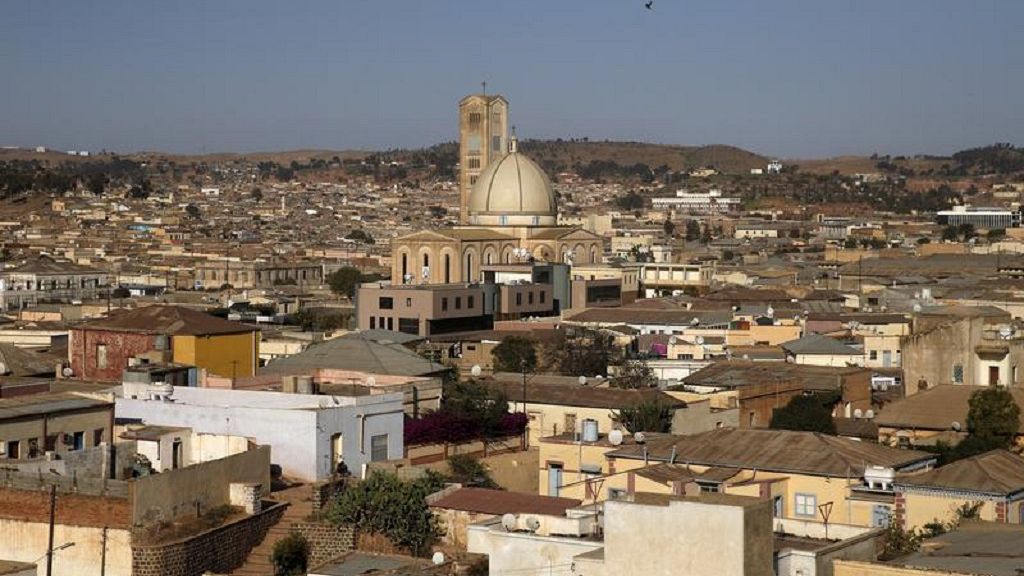
Independence, Ethiopia and international relations
Eritrea was colonized by two European countries – Italy (1889 – 1941) and England (1941 – 1952). It was annexed by Ethiopia in 1961 after the UN declared it an an autonomous region of Ethiopia after the British left in 1952.
In 1991, the Eritrean Peoples Liberation Front triumphed in a war of independence, they are said to have had a hand in deposing Ethiopia’s last emperor, Mengistu Haile Mariam in 1974.
Eritrea in 1993 voted for independence from Ethiopia in a UN-backed referendum and subsequently gained international recognition. It is currently a full member of the African Union (A.U.) and of the United Nations (U.N.)
A constitution was promulgated in 1997 but has never been implemented. The last presidential elections were planned for the same year but failed to hold. Nothing has been mooted along those lines since then. The Central Intelligence Agency (CIA) reports that work on a new draft constitution started in 2014 and continued well into 2016.
A U.N. rights rapporteur continues to accuse Asmara among others of gross human rights infractions like arbitrary arrests, incommunicado detention, enforced disappearances and mandatory national service system that amounts to enslavement.
The U.N. official has previously asked that Eritrea be hurled before the International Criminal Court (ICC). For their part, the regime in one of its rare responses to the U.N. said in 2016 through the ambassador to France that the report was baseless adding that it was been remote controlled by elements in Ethiopia.
‘I regret to report that, as of now, the government has made no effort to end ongoing human rights violations, which the Commission of Inquiry on Human Rights in Eritrea described as amounting to crimes against humanity,’ Sheila Keetharuth said.
Asmara is accused of supporting rebels who are against constituted authority in the region. Ethiopia insists Eritrea-backed rebels are involved in planned attacks on them and also have a hand in anti-government protests.
Eritrea was also hit by a U.N. Security Council arms embargo in 2009 because of its alleged support for al-Shabaab insurgents in Somalia. They have repeatedly called for the U.N. to lift the “useless and unjustified” sanctions.
- The population stands at about 5.8 million (July 2016 estimates)
- The land area measures about 117,400 square kilometers.
- Official languages are Tigrinya, Arabic and English.
- Major religions are Islam and Christianity
- The national currency is known as the Nakfa.
(Facts courtesy of U.N. and the World Bank)
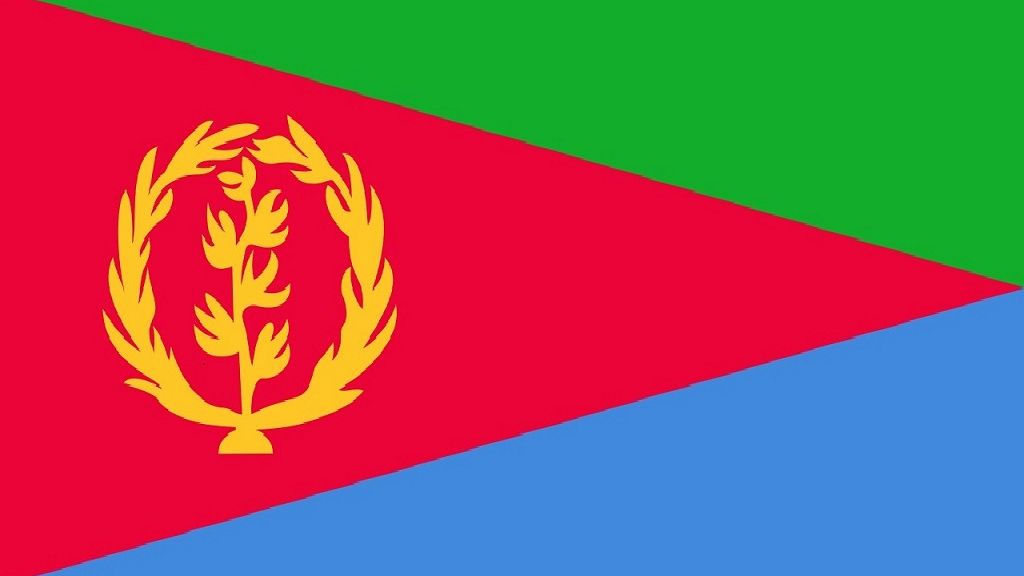
Powerful president and arms of government
President Isaias Afwerki has been the country’s political leader since independence while his party, the People’s Front for Democracy and Justice (PFDF) remains the only known party. He heads the presidency and the legislature – in his capacity as chairman of the National Assembly.
The legislature is unicameral also known as the Hagerawi Baito – it has 150 seats of which half are members indirectly elected by the ruling party with the other 75 directly elected by simple majority vote, a term lasts 5 years.
The country is a one-party state with the only political opposition being from political pressure groups like the Eritrea Democratic Alliance (EDA), Democratic Movement for the Liberation of Eritrean Kanuma (DMLEK) and others.
Eritrean judiciary consists of High Courts – the apex body, as well as other subordinate courts at the regional and zonal levels. Others are the community, special, sharia and military courts.
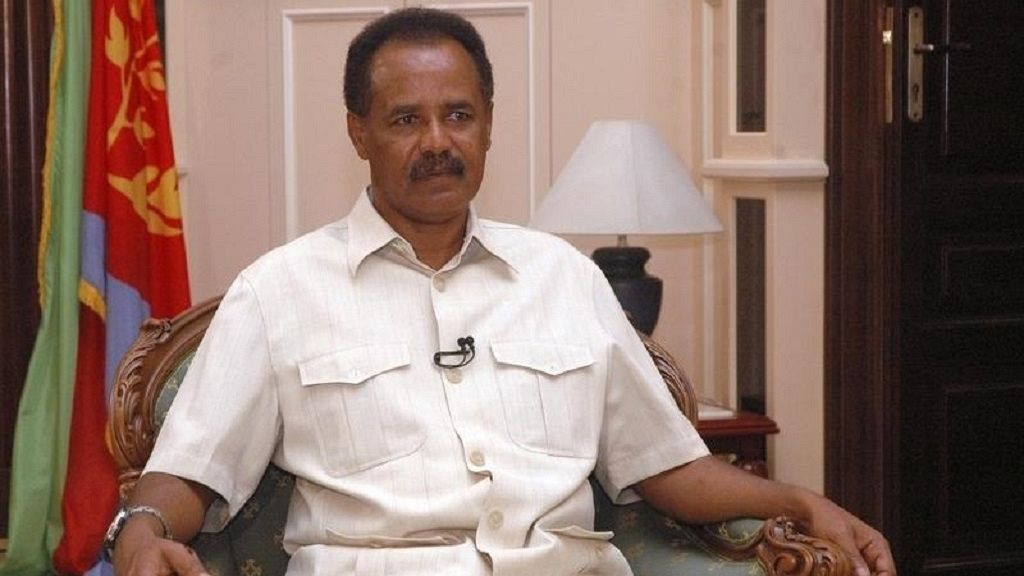
Media and migration headache
Political and media watchers report that private media is almost non-existent and foreign journalists are usually refused access – except recently when a number of them gained formal entry. The country usually occupies the bottom places in media freedom rankings.
Eritrea has one of the highest number of young people leaving in search of greener pastures by making the perilous desert and sea crossing hoping to reach Europe. Reasons for the flight has been attributed to political persecution and the poverty situation.
President Afwerki jabbed German Chancellor, Angela Merkel and ex-French president Francois Hollande in January 2017 over the issue of migration going as far as describing them as ‘mentally disturbed’.
Figures released by humanitarian groups indicate that Eritreans are among the highest number of people making the perilous journey across the Mediterranean sea hoping to reach Europe. Some have also crossed into economically booming Ethiopia to seek greener pastures.
The U.S. also classes Eritrea in the Tier 3 bracket of its Trafficking in Persons report, meaning the country does not fully comply with minimum standards for the elimination of trafficking and was doing little to change that situation.
A large section of the population are engaged in subsistence agriculture but the sector contributes very little economically. The CIA says the dire economic situation is compounded by drought across the Horn of Africa region. Copper, potash and gold production are the main drivers of the economy.



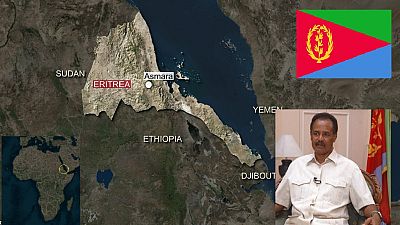

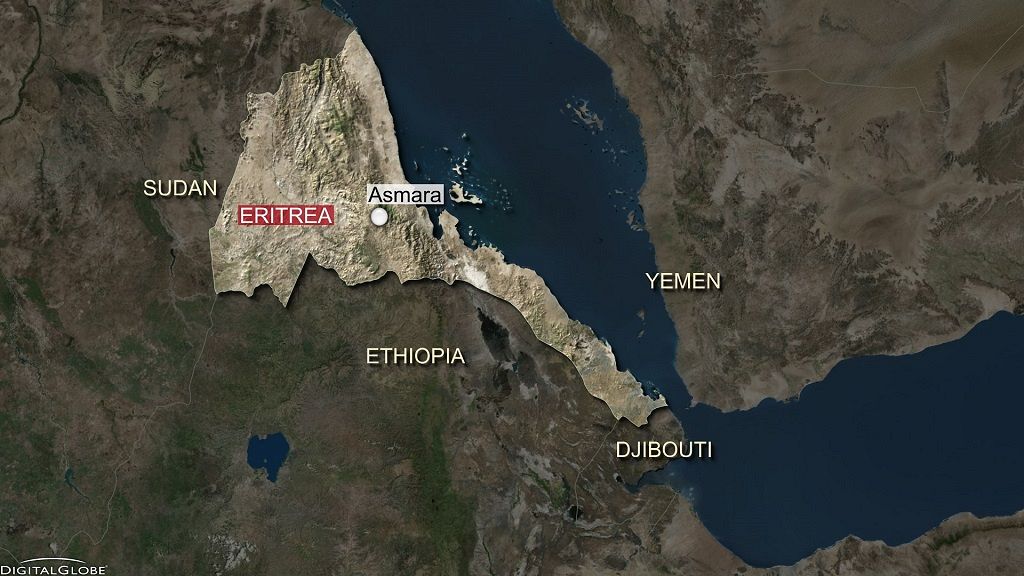



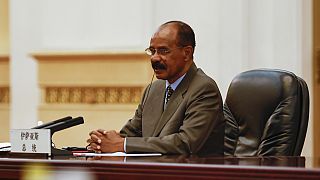
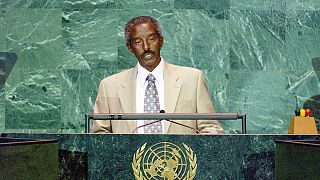
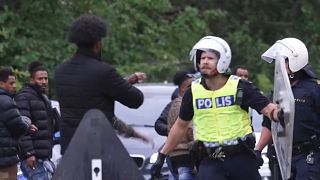



01:00
Giant mural in France critiques Trump's immigration policies
01:34
Eswatini says it will repatriate immigrants deported by United States
01:17
UNESCO inscribes 26 new sites on World Heritage list
00:49
Barcelona's Yamal faces probe over allegations he hired people with dwarfism to perform at party
01:07
Spain: at least 10 detained in anti-immigration clashes in Murcia region
Go to video
Greece cracks down on irregular migration, says it’s "not an open corridor to Europe"